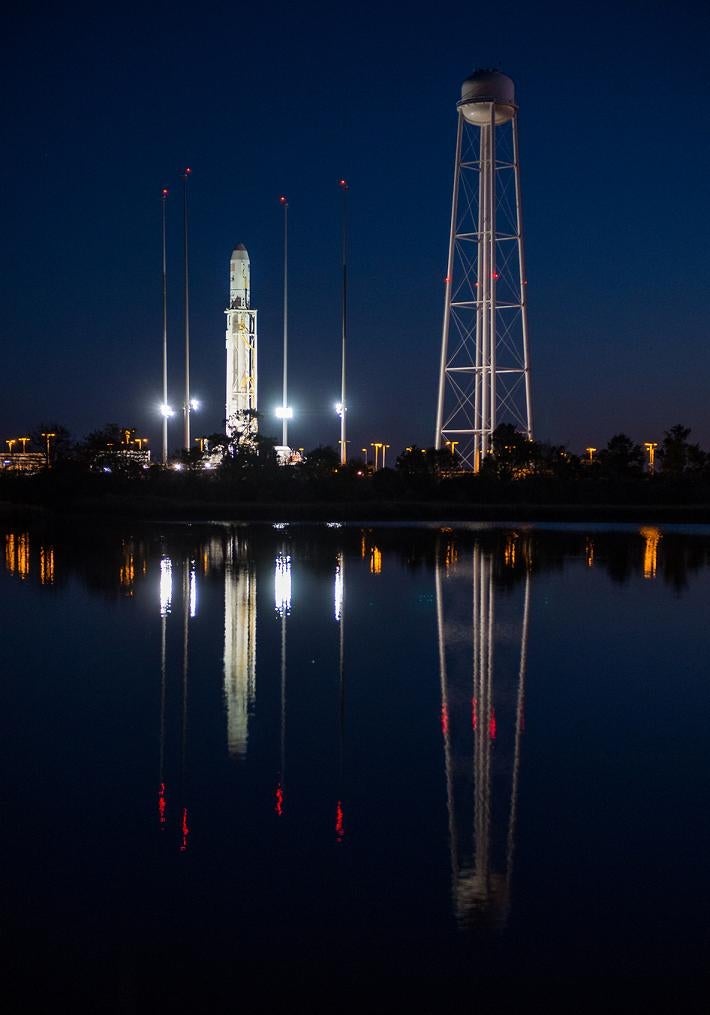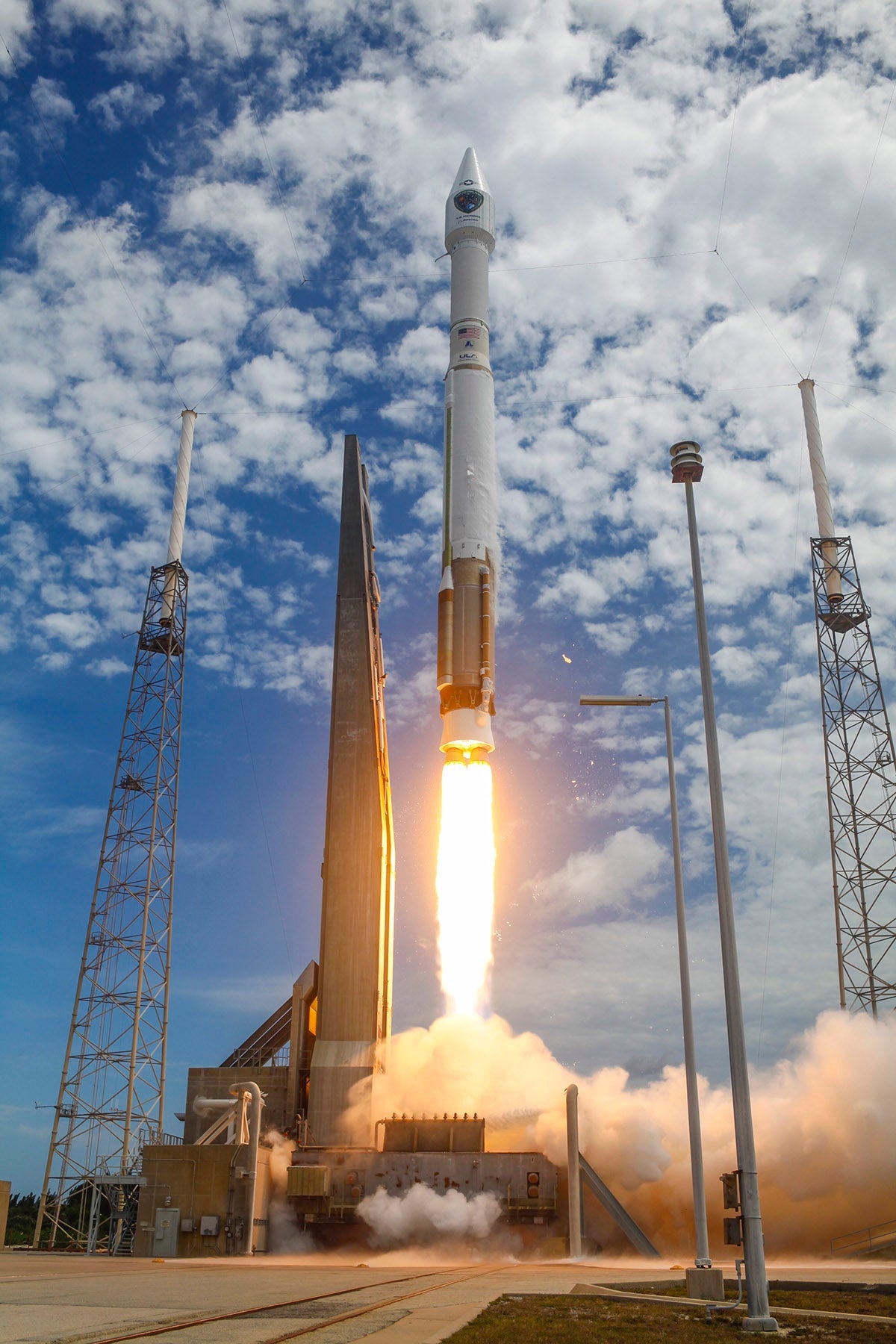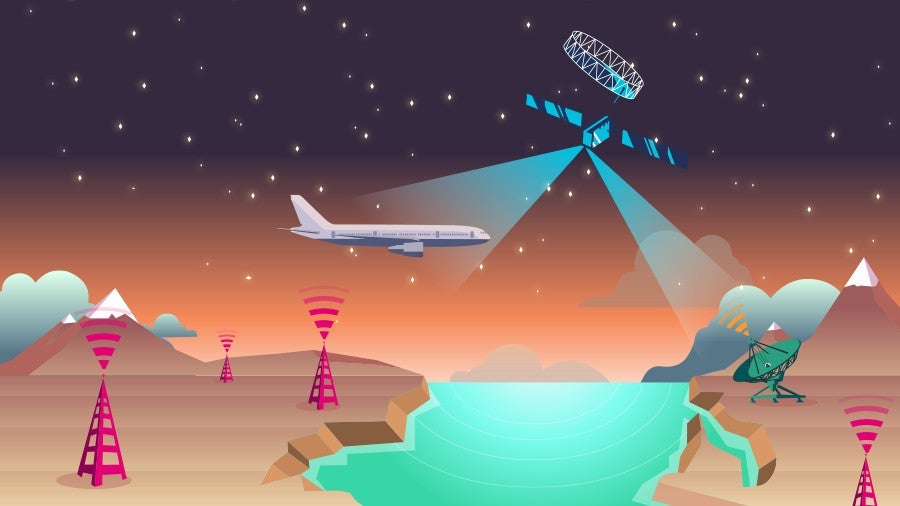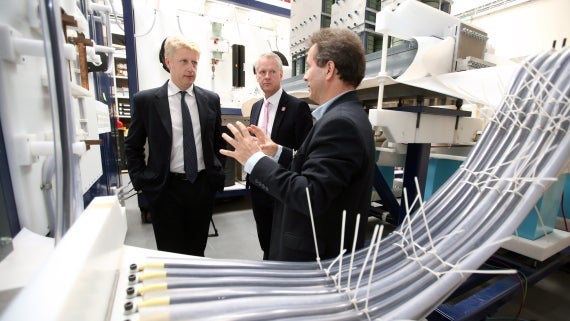

Nasa finds evidence of liquid water flow on Mars
US space agency Nasa confirmed it has found strong evidence of flowing liquid water on Mars, suggesting the possibility of life on the planet.
Nasa’s Mars Reconnaissance Orbiter (MRO), which has been circling the planet since 2006, provided evidence that liquid water occasionally flows on Mars.
Researchers used an imaging spectrometer on MRO that detected marks of hydrated minerals on the planet’s slopes where mysterious streaks can be seen.
The streaks appear to recede and flow over time; they darken and seem to flow during warm seasons and fade in cooler conditions.
Boeing receives $38bn of orders from China
American aircraft manufacturer Boeing received orders and commitments for 300 aeroplanes from China, which could worth $38bn at list price.
How well do you really know your competitors?
Access the most comprehensive Company Profiles on the market, powered by GlobalData. Save hours of research. Gain competitive edge.

Thank you!
Your download email will arrive shortly
Not ready to buy yet? Download a free sample
We are confident about the unique quality of our Company Profiles. However, we want you to make the most beneficial decision for your business, so we offer a free sample that you can download by submitting the below form
By GlobalDataThe company signed the agreement with China Aviation Supplies Holding Company.
Boeing will deliver 240 aircraft to Chinese airlines, including 190 737s and 50 wide-body aircraft. The order also covers 60 737s to be delivered to leasing companies ICBC and CDB Leasing.
Chinese President Xi Jinping made the announcements during his recent tour to Boeing’s Everett, Washington factory.
Lockheed gains approval for $9bn Sikorsky acquisition
US authorities approved Lockheed Martin’s $9bn cash acquisition of Sikorsky Aircraft from United Technologies.
Lockheed expects to close the deal by the end of this year or early next year.
The deal gained approvals from authorities in Japan and South Korea, but is awaiting additional regulatory permits from China and the European Union, where at least one of the companies operates.
US agencies involved in the review of the deal include US Justice Department, the Pentagon, and other federal agencies.
Aerojet to pay Orbital $50m for Antares rocket explosion

Rocket and missile propulsion maker Aerojet agreed to pay $50m to Orbital to settle a dispute over the Antares rocket launch explosion last year.
On 28 October 2014, an unmanned Orbital Antares rocket propelled by a 1960s Soviet engine that was refurbished by Aerojet, exploded after leaving a Nasa launch pad.
The rocket blew up 15 seconds after lifting off in order to carry cargo to the International Space Station.
Under the agreement, Orbital will return the title to Aerojet for ten engines scheduled for delivery under the previous deal. It will also formally end Aerojet’s association in the Antares rocket programme.
Orbital ATK to offer solid rocket boosters for Atlas V and Vulcan launches

US-based United Launch Alliance (ULA) chose Orbital ATK to provide solid rocket boosters to its Atlas V and upcoming Vulcan launch systems.
Orbital ATK will start developing the new solid rocket boosters immediately, to be ready for ULA’s Atlas V vehicle in late 2018.
Development of solid boosters for ULA’s Vulcan vehicle will be completed in 2019.
Under the deal, Orbital ATK will design and develop two new, low-cost rocket motors using its own solid motor technology. The motors will be support ULA’s Atlas V and Vulcan vehicle launches.
They will also be commercially available to other customers.
Isro launches India’s first astronomical observatory satellite
Isro successfully launched India’s first space-based astronomical observatory satellite into Earth’s orbit from its initial launch pad at the Satish Dhawan Space Centre in Sriharikota.
Through this launch, India became the only country in the developing world to have its own telescope in space. Until now, only the US, European Union and Japan have had the capability.
The Polar Satellite Launch Vehicle (PSLV-XL) rocket launcher that lifted ASTROSAT into space also carried six foreign satellites, with four from the US, one from Canada, and one from Indonesia.
ASTROSAT was successfully placed in Earth’s orbit around twenty minutes after lift-off.
Lufthansa to offer broadband service on short-haul European flights

From next year, Lufthansa will offer broadband internet services to passengers on its short and medium-haul flights within Europe.
As the first-of-its-kind service in Europe, this will help passengers communicate and use high-speed internet when in the air. The company’s aeroplanes will be fitted with new technology for the purpose.
Inmarsat will delpoy its new Inmarsat S-band satellite with Deutsche Telekom’s LTE-based ground network.
Deutsche Telekom will create approximately 300 LTE sites with a range of 10km or less, which can transmit signals to passenger planes.
Virgin Galactic successfully tests NewtonThree engine
American spaceflight company Virgin Galactic successfully tested the Newton Three main stage engine to be used on its small satellite launch vehicle LauncherOne.
The in-house rocket propulsion team of Virgin Galactic has test-fired the engine at a custom-built test stand in Mojave, California.
The latest test firings of key propulsion components by the LauncherOne team are considered to be a milestone towards Virgin Galactic’s satellite launch mission.
Through the project, the LauncherOne team achieved a longer duration steady-state operation and was able to capture high-quality data about the main stage engine during start-up, operation, and safe shutdown.
Cardiff University gets funding for lightning protection research

Cardiff University will receive £2.6m from UK Research Councils to carry out the PROTEST research project, which looks into developing systems for protecting modern aircraft from lightning strikes.
Aircraft manufacturer Airbus, HEXCEL, manufacturer of carbon composites, and National Composite Centre are also partners in the project.
Research will take place in the newly revamped Morgan-Botti lightning laboratory, which will focus on understanding the mechanisms used in aircraft joints, built from carbon composite materials.
The laboratory was set-up with an investment of £1.6m in 2007, with cooperation from Airbus and the Welsh Government.
Ilika receives grant to research self-healing alloys for aerospace
Solid-state battery technology company Ilika has received a £466,000 grant from the UK to conduct research into self-healing alloys for additive manufacturing process.
The grant is a part of Ilika’s three-year collaborative project being carried out with the University of Sheffield, Reliance Precision Engineering, GKN and BAE Systems.
The cost of the entire project is £2.15m.
Ilika secured funding for the project after it won a competition run by Innovate UK, the UK Government innovation funding body, on behalf of the Department for Business Innovation and Skills, and Aerospace Technology Institute.


